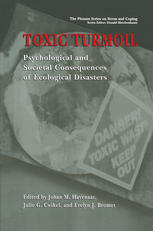

Most ebook files are in PDF format, so you can easily read them using various software such as Foxit Reader or directly on the Google Chrome browser.
Some ebook files are released by publishers in other formats such as .awz, .mobi, .epub, .fb2, etc. You may need to install specific software to read these formats on mobile/PC, such as Calibre.
Please read the tutorial at this link: https://ebookbell.com/faq
We offer FREE conversion to the popular formats you request; however, this may take some time. Therefore, right after payment, please email us, and we will try to provide the service as quickly as possible.
For some exceptional file formats or broken links (if any), please refrain from opening any disputes. Instead, email us first, and we will try to assist within a maximum of 6 hours.
EbookBell Team

5.0
98 reviewsWhen an accident involves many people and when its consequences are many and serious, we speak of a disaster. Disasters have the same causal fac tors as accidents: they differ from accidents by the gravity of consequences, not by causes. The action of a single individual may result in thousands of deaths and huge financial losses. The metal fatigue of a screw may, by a chain of events, cause an explosion killing hundreds or lead to a break in a dam and a devastating flood. The fact that minor and unpredictable acts can lead to disasters is im portant because it allows us to predict that the years to come will bring with them more disasters with ever more severe consequences. The density ofhu man populations is growing. By the year 2025 some four fifths of the world's population will be living in urban settings. An explosion or a gas leak in a densely populated area will cause incomparably more damage than a simi lar event in a rural area. Modern technology is immensely powerful (and its power is continuing to grow) and can be used in a disastrous manner. Ag gression is just as possible now as it was in the past, but the tools of aggression are vastly more dangerous than ever before. This book, edited by Johan M. Havenaar, Julie G. Cwikel, and Evelyn J. Bromet, is therefore very timely.